We have been privileged to work with producers in El Salvador who we have a long relationship with and who have really enriched our business and have given us a unique range of coffees that have always made us proud to have on our offer list. Working with Gilberto Baraona from Los Pirineos, and Andres & Jose Antonio Salaverria from the Jasal group has given us great scope for offering a different kind of El Salvadorian coffee.
Gilberto has been a pioneer in producing honey processed coffees of all kinds. At Los Pirineos he is drying coffees almost entirely on trays with grids that are raised above the ground, each tray carries smaller volumes than you’d traditionally see on raised beds, allowing for experiments and an array of different drying techniques. For Gilberto the definition of his honeys is as follows,
- Yellow honey: as much mucilage left on the parchment as possible, dried on raised beds in full sun and the parchment is moved from the first day of drying
- Red honey: as much mucilage left on the parchment as possible, dried on raised beds in full sun but the parchment is only moved after the third day of drying
- Black honey: as much mucilage left on the parchment as possible, dried on raised beds under shade cover and the parchment is only moved after the third day of drying
He has also focused on assessing the viability of different varieties at different altitude segments of the farm. His interest in this has inspired a variety garden in the farm with some 30-something different varieties.
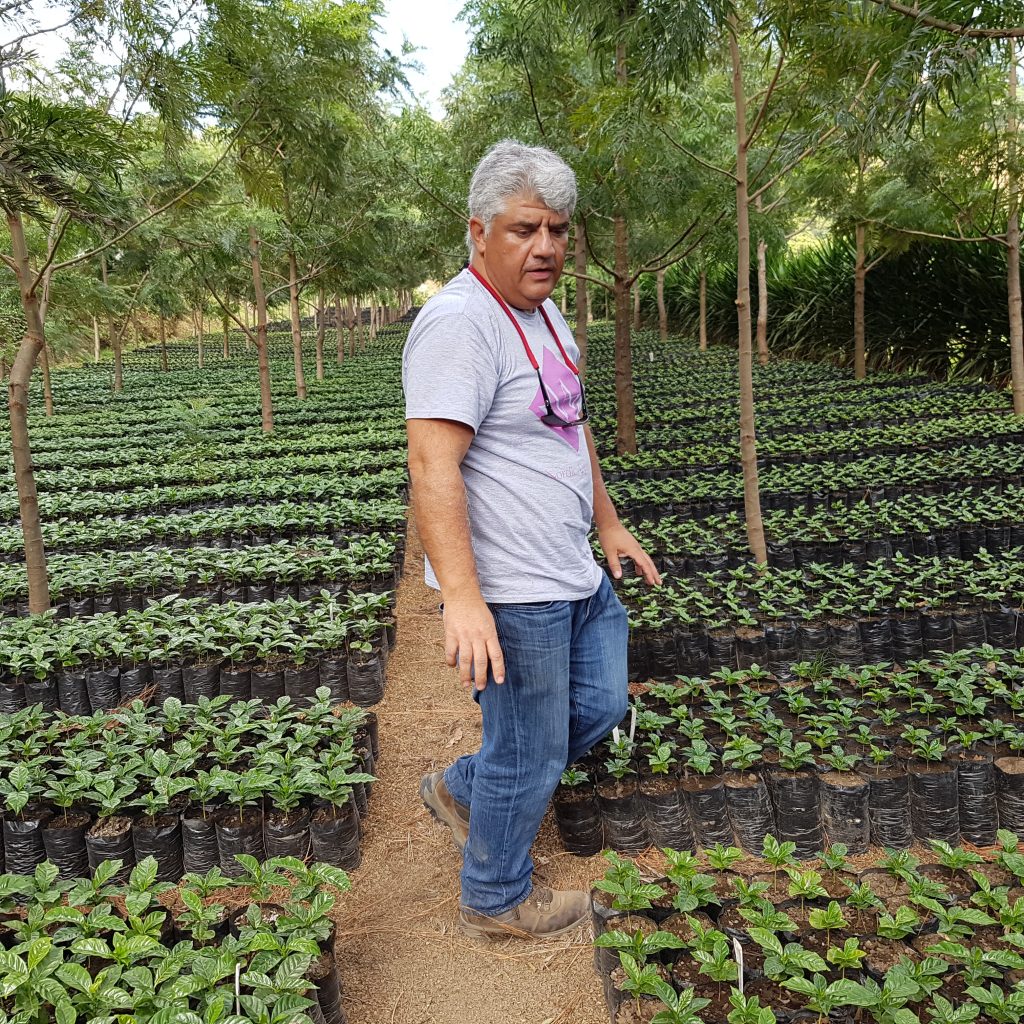
Gilberto Baraona in his nursery at Los Pirineos. A lot of replanting and renewal of the farm lately.
We are buying a good amount of honey processed coffees from Gilberto, as well as lots consisting solely of Bourbon, and solely of Pacamara varieties.
While the Jasal group are one of the oldest coffee producing families in El Salvador, and in El Salvador’s peak of production their mill was one of the largest processing mills in the country. This mill still sits in the the midst of their Molino farm, although no longer active it is quite a sight to behold and an example of the historical position El Salvador held as one of the major coffee producers globally.
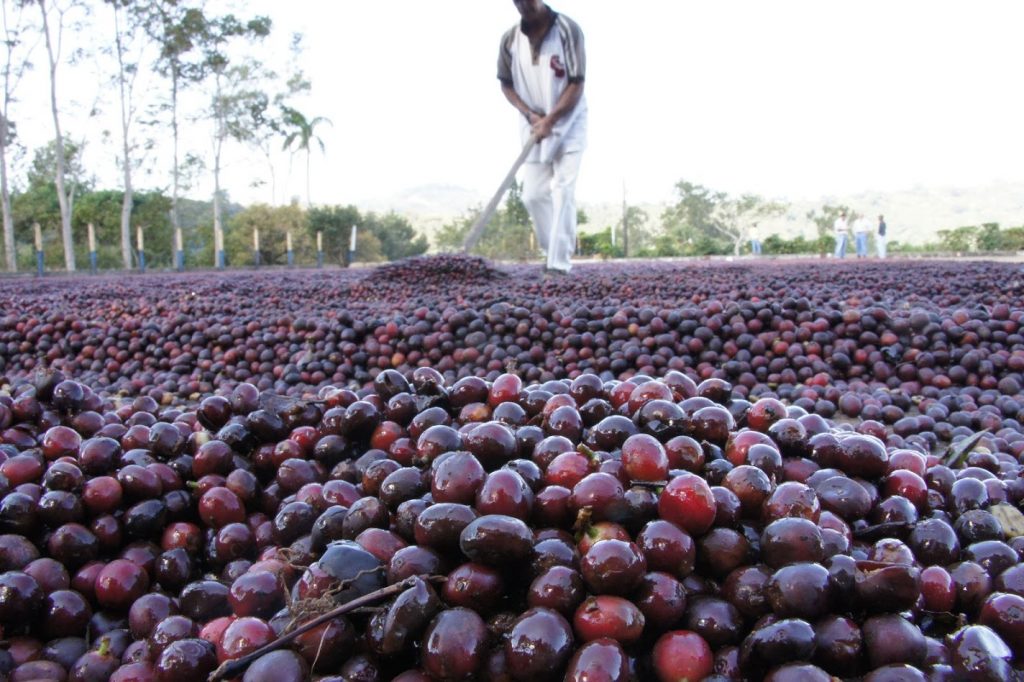
The cherry quality going in to natural production at the farms we work with in Santa Ana in El Salvador is amazing.
In one way or another Morten has worked with the Jasal group for some 10 years or so, and some of the early conversations we have had as partners lead to Jasal adapting the way they are processing coffees, and planting new varieties. In these conversations we have shared knowledge of how we have seen coffees being processed in other parts of the world, in particular in Kenya and Ethiopia. This is what brought about the method at Jasal of soaking and double soaking, which is pretty uncommon in normal production in El Salvador.
- Soaked: cherry is pulped and as much mucilage as possible is removed mechanically, after which the coffee is soaked in fresh, clean water
- Double soaked: cherry is pulped but no mucilage is removed, the coffee is then soaked in order for fermentation to manually remove mucilage. The coffee after having lost all its mucilage is then soaked again in fresh, clean water.
After working with this method for some years we have found that the coffees being processed this way are having a much longer shelf life.
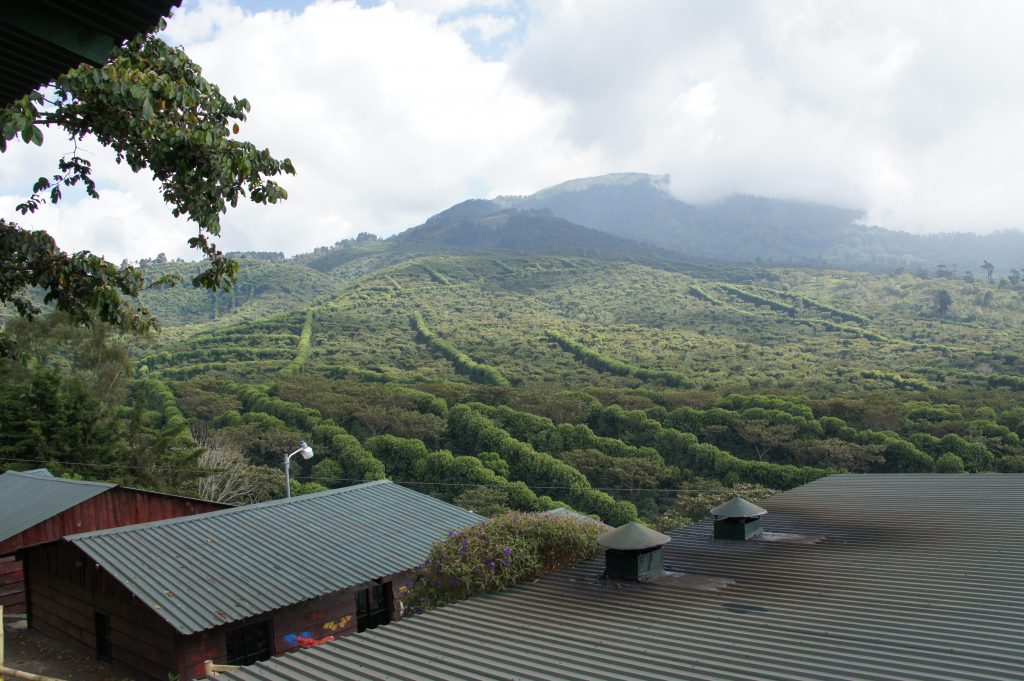
This is an overview of several of the farms of the Salaverria family in Santa Ana in El Salvador. It goes up to 1700 masl. They can suffer from hurricanes and really heavy winds, so the trees are planted as windbreakers to protect the coffee trees. The windbreakers also decides the greater farms in to “tablones” (blocks) thats originally smaller farms and can often have different varieties and shade trees etc.
The most recent conversation we have been having with Andres and Jose Antonio is about different kinds of processes in coffee, rather than different kind of washed coffees. We see that there is a lot of interest from our customers in Honey and Natural coffees. At Jasal they have lately done some Honey and Natural processed coffees and we have been very happy with their results. Not only have Andres and Jose Antonio been able to produce great coffees in this way they have also been willing to invest in building infrastructure to increase their ability to produce these kinds of coffees, and at El Molino they have built many more African beds to facilitate this. We will already have more volumes available this year and going into the next season you will see more of these kinds of coffees.
It is both important for us to adapt to provide a good range of products as we grow, and equally important that the production of these product is viable and makes sense for the producers we work with. Sometimes that means a gradual change in production, and always a certain commitment to a producer when suggesting or asking for change. At any time, but in a market were since March 2017 the C market has been below 150c/lb and we are currently just above 100c/lb, the risk for producers to get a return on what they invest in changing their production is huge. We need to be mindful of that.
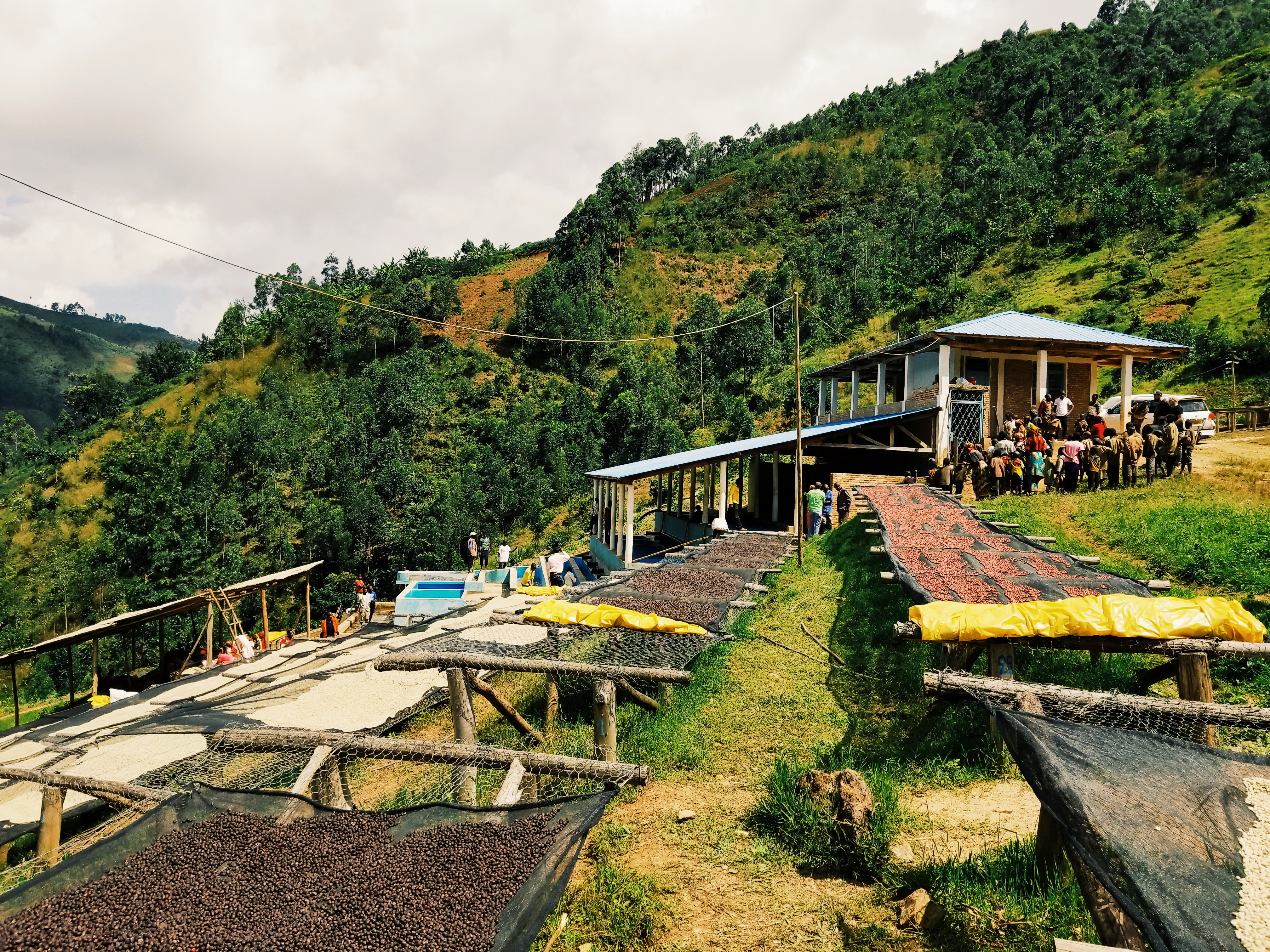

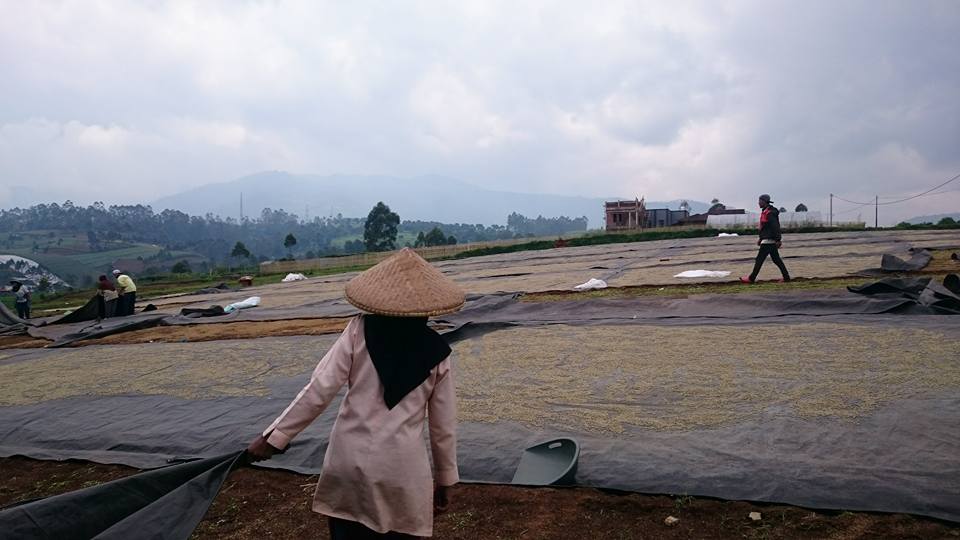
0 Comments